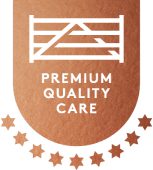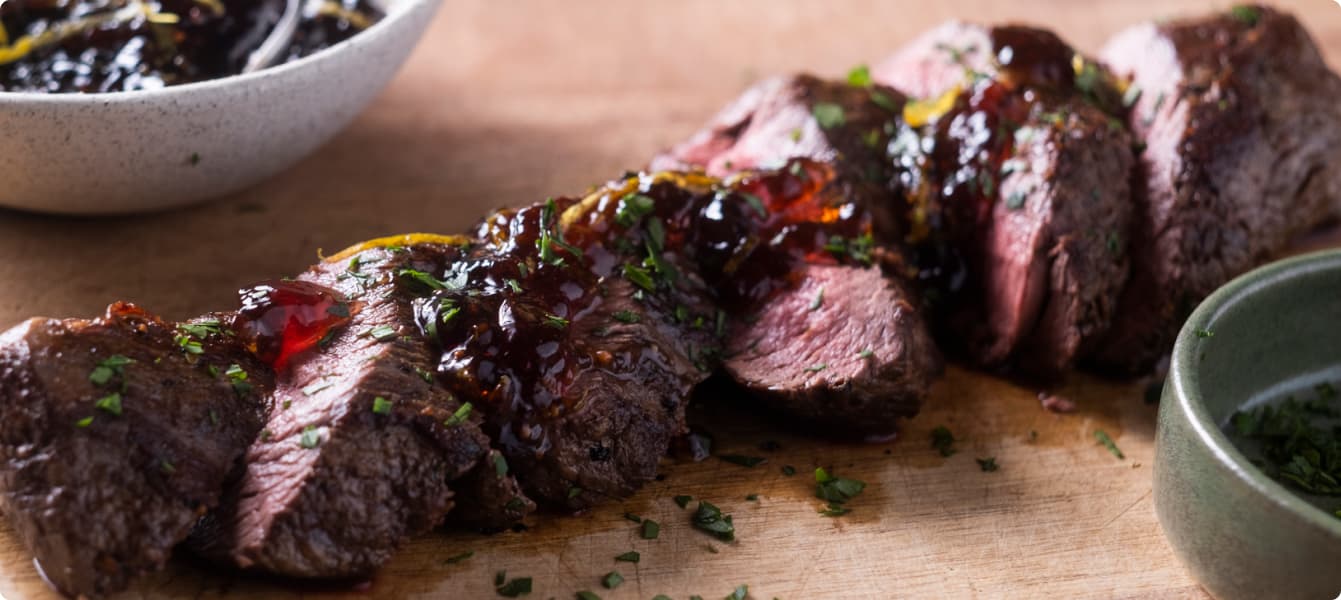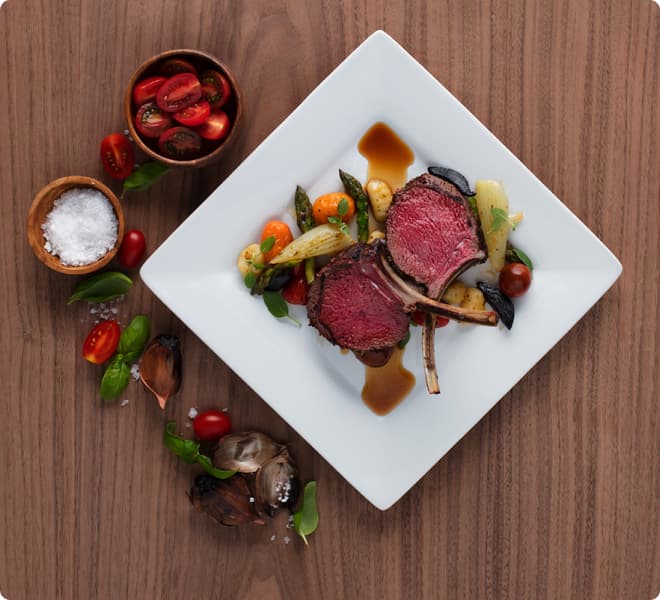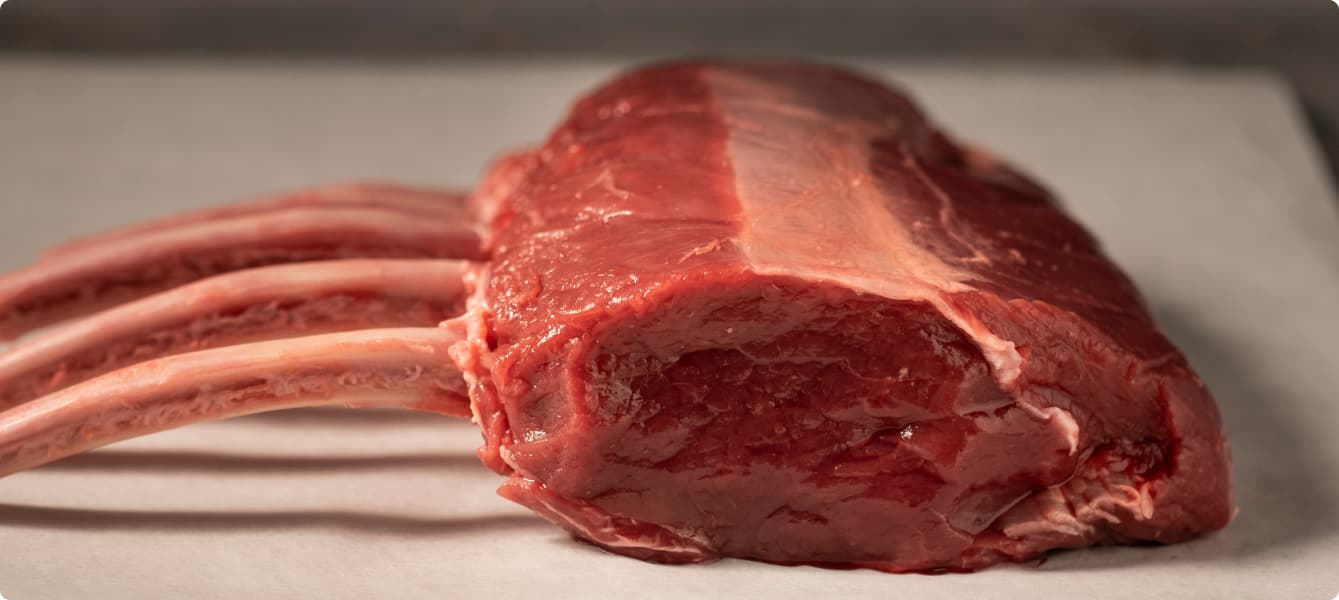Free range
Pure South is more than a name — it’s our legacy, passed down through generations of farmers deeply connected to the land they tend.
Meat Eating Experience
We’re proud to introduce the Meat Eating Experience — an independent validation by Aus-Meat that the proof really is in the eating. Powered by ag tech solutions provider MEQ, we use a world leading combination of spectral analysis and AI to independently verify that our Lamb and Beef is consistently nothing short of delicious.
The technology assesses intramuscular fat (IMF).
IMF is a key driver of tenderness, juiciness, and great flavour. Our grass-fed meat develops this IMF with polyunsaturated fat, a healthy fat that enhances nutrition and the overall meat eating experience.
Sweet & Succulent Flavour
From pasture-raised young New Zealand deer, Pure South Venison gives you the freedom to create. Its unique taste and ability to adapt allows it to stand alone or be your ideal canvas.
Farmed venison has an exceptional taste, is more tender and performs more consistently both in the pan and on the plate. To qualify as a Pure South Farm-Raised Venison, animals must be three years and under, raised naturally on open New Zealand pasture without hormones or steroids and meet rigorous production and quality standards.
Concentrated earthy, savoury flavours with natural saltiness and a smidgen of organic mineral flavour convey depth and balance to the meat. Smells of fresh paddock mushrooms and aromatic woody herbs capture the flavour of venison.
Attributes
Grass fed
Farm Assured
Free Range
GMO Free
Goodness You Can Taste
Pure South farmers have crafted premium meat as nature intended, across New Zealand’s lush green pastures. Our free-range, grass-fed animals are raised with care, free from GMOs and hormones.
From pasture to plate, we combine tradition and innovation to deliver consistently tender, succulent meat, rich in natural nutrition. Enjoyed in over 65 countries, Pure South represents premium, quality, and care, creating a memorable eating experience every time.
Taste the goodness in every bite—naturally rich, delicious and unforgettable.
The Best of Nature
Our meat is the best of nature because the best of nature went into creating our meat. We pursue ambitious targets aimed at improving our overall environmental footprint. This is consistent with what both our global customers and consumers ask of the world.
We produce low carbon footprint red meat. Even allowing for freight, our lamb is less than half that of the global average and our beef one third less.*
Even allowing for freight, our lamb is less than half the carbon footprint that of the global average and our beef one third less.*
* Source: Life Cycle Assessment, Ag Research New Zealand, 2021.











